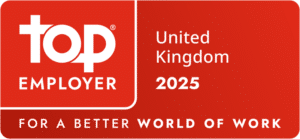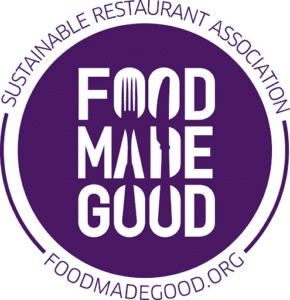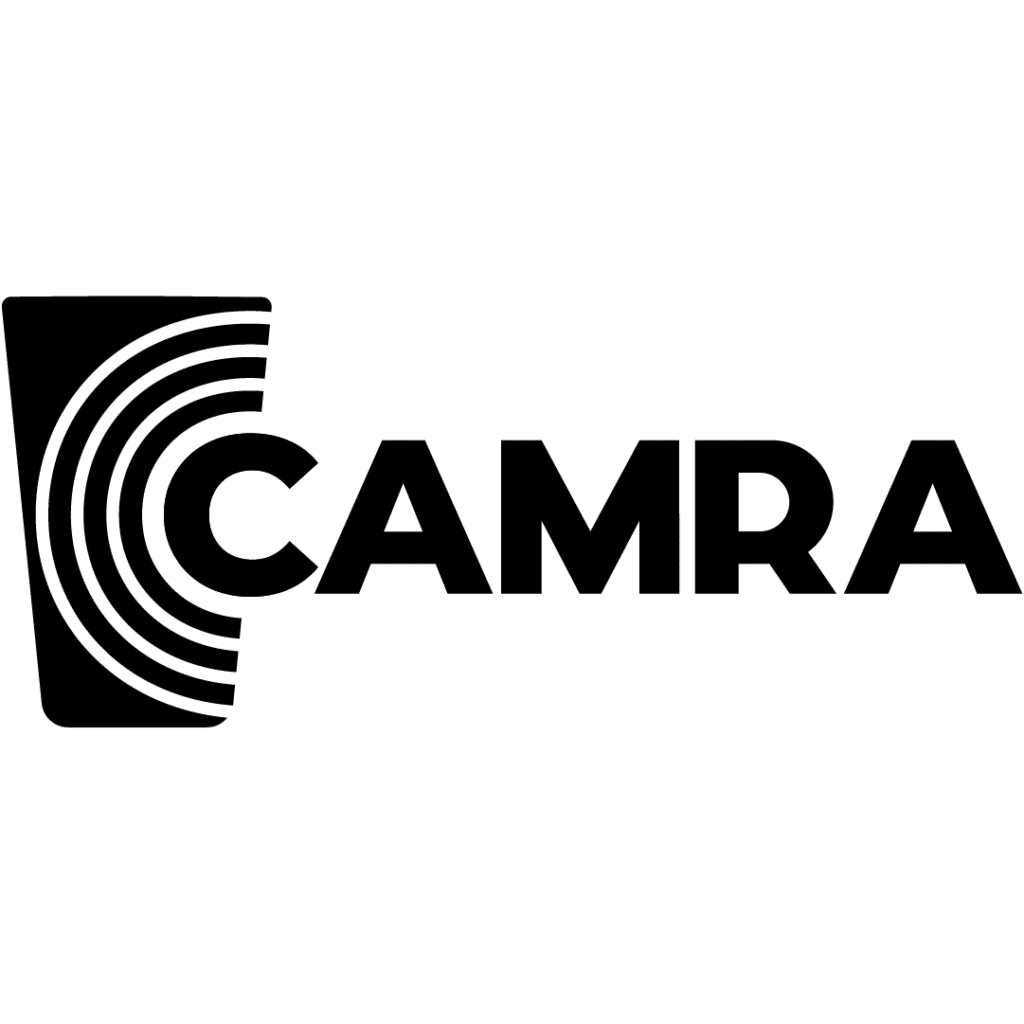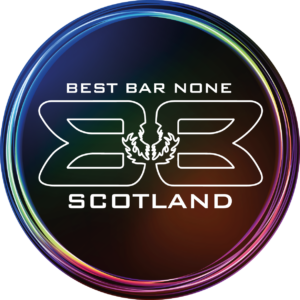Responsible retailing
Responsible retailing
Publishing date: October 2025
The term ‘responsible retailing’ refers to food and drinks served, the management of gambling, the provision of accommodation and meeting overall company responsibilities.
Food served
Wetherspoon aims to provide a balanced menu which offers customers variety and choice, when it comes to nutritional and dietary preferences, and gives transparency of information for customers to be able to make informed decisions.
The menu, and food, philosophy is to ensure that every item is best in class (EIBIC) and to strive consistently to improve each item, meal and/or process.
The company has set targets and commitments in this area, including:
- By November 2027 – at least one option in each menu category which contains no more than 50% of the total recommended daily intake for kcal, sugar, fat or salt
- By November 2027 – the average of all dishes in each category is no greater than 30% of the total recommended daily intake for kcal, sugar, fat or salt
- Set and work towards maximum kcal (Calorie) levels for each menu category as follows:
- main meal (adult) – 1,400 kcal (70% of recommended daily kcal, female)
- dessert (adult) – 625 kcal (31% of recommended daily kcal, female)
- small plates – 500 kcal (25% of recommended daily kcal, female)
- Provide menu options (all menu templates) for the following dietary requirements:
- vegetarian meal options (including vegan options) – not under 33% of menu choices
- vegan meal options – not under 15% of menu choices
- no-gluten-containing options – not under 25% of menu choices
- no-dairy-containing ingredients options – not under 40% of menu choices
- under 500 Calories options – not under 33% of menu choices
- 5% fat or less dish options – not under 25% of menu choices
With regard to the main menu, Wetherspoon has committed to the following:
- Track the levels of kcal, sugar, fat and salt and not to increase the average consumption (by dish) of any of these, across our menu as a whole.
- Offer a lighter or small portion alternative for all categories and meal occasions, including desserts and snacking.
- Ensure that vegetables and/or salads are
- available on all menus.
- Offer healthier alternatives for side orders on all menus, such as side salad and jacket potatoes.
- Where appropriate, offer the option of a smaller meal, by offering a lower price without the side orders (such as chips and onion rings), eg just-a-wrap or smaller portion-size meals, eg small fish and chips.
- Remove artificial flavours and colours and as many of the 14 major allergens as possible.
- Ensure that all meals are nut-free.
- Make available on customer information screens, the Wetherspoon website and app a list of all ingredients in every dish.
Children’s menu
With regard to the children’s menu, the following targets are being worked towards:
- By March 2026 – the maximum kcal and sugar for each menu category will be:
- main meal (child) – 700 kcal (50% of recommended daily kcal, 6–10 years)
- main meal (younger child) – 500 kcal (50% of recommended daily kcal, 2–3 years)
- dessert (child) – 375 kcal (25% of recommended daily kcal, 6–10 years); 12g sugar (50% of recommended daily allowance)
With regard to the children’s menu, the following targets are being worked towards:
- Monitor kcal, salt and sugar levels in all food and drinks specifically marketed at children.
- Provide a children’s menu offering credible healthier choices, with controlled levels of salt, added sugar, saturated fat and total fat.
- Support and promote the five-a-day message for fruit and vegetables. All children’s meals will be served with two portions of vegetable or a side salad, plus a fruit portion.
- Keep salt levels as low as possible. Clearly highlight lower-salt choices and dishes which fall below the 1.71g target.
- Promote healthier choices, wherever possible, highlighting these healthier swaps on menus.
- Not to offer or promote to children fizzy drinks or any other drink which falls under the Soft Drinks Industry Levy (SDIL).
- No artificial flavours or colours in any food marketed at children.
Menu balance – vegetarian and vegan
The company has, over the years, increased the menu options for customers eating none, or reduced, meat, fish and animal-related products and, subject to demand, will continue to do so.
The current menu (available in the majority of pubs) has:
- vegetarian meal options (including vegan options) – 45% of menu choices
- vegan meal options – 13% of menu choices
- under 500 Calories – 22% of menu choices
Health and nutrition, allergens
In line with the Calorie Labelling (Out of Home Sector) (England) Regulations 2021, all menus detail calories for all food items and some drink items.
Full allergen, nutritional and calorie information can be found on customer information screens in pubs, the website and the Wetherspoon app. Customers can ask at the bar, where staff will be able to direct them to this information.
Vegetarian dishes, vegan dishes, dishes which are 5% fat or less and dishes under 500 Calories are indicated by symbols on the menu.
Soil Association – Out to Lunch campaign 2024
The Out to Lunch 2024 campaign run by the Soil Association, sent an army of secret diner parents to assess the quality of 20 popular UK high-street food chains.
The criteria which it considered included:
- availability of healthy and fresh food options
- provision of nutritional information
- sustainable sourcing of ingredients
- use of British meat
It rated Wetherspoon as second overall to Wahaca, with Harvester and Nando’s close behind.
Drinks served
Code of conduct for responsible retailing
Wetherspoon has developed a code of conduct for responsible retailing (the ‘Code’) which sets out the procedures to promote the four licensing objectives in England and Wales…
- Prevention of crime and disorder
- Maintaining public safety
- Prevention of public nuisance
- Protection of children from harm
..and the five licensing objectives in Scotland…
- Preventing crime and disorder
- Securing public safety
- Preventing public nuisance
- Protecting and improving public health
- Protecting children and young persons from harm
The Code was first introduced in April 2004, before the introduction (in 2005) of the Licensing Act 2003. It is periodically reviewed as a result of company experience in dealing with local authorities, police forces and local residents – to ensure that it continues to reflect best practice.
The Code applies to England, Wales and Scotland [there is a separate code for Ireland] and is divided into sections, one for each licensing objective, withspecific practices and procedures identified for the relevant objective. However, there exists considerable overlap between practices and the objectives, so some procedures address more than one of the objectives simultaneously, eg staff training procedures address all licensing objectives, while the CCTV policy is relevant to the ‘prevention of crime and disorder’ and ‘prevention of public nuisance’ objectives.
Wetherspoon works with statutory authorities and local residents to ensure that the licensing objectives are being promoted and recognises that overall success of the licensing régime depends on the continuation of partnerships among the licensed
trade, responsible authorities and local communities.
In October 2014, it was the first major on-trade alcohol retailer to include the alcohol unit content of all drinks on the drinks menu. Alcohol units are now displayed on the Wetherspoon app and the customer information screens in pubs.
Industry trade bodies and associations
The company supports and works with cross-industry organisations, including UKHospitality (UKH) and the British Beer and Pub Association (BBPA). A company representative sits on the National Pubwatch committee. In addition, financial support is provided to Drinkaware and the Licensed Trade Charity.
Pubwatch
Pubwatches are groups of licensees who voluntarily work together, with support from local partners such as the police, to address crime and antisocial behaviour, creating a safer night-time economy for staff and customers.
The schemes are instrumental in reducing alcohol-related crime and improving the safety of the night-time economy, an independent study* commissioned by voluntary organisation National Pubwatch has confirmed. The results showed that 86% of licensees, staff, police and those working in organisations such as local authorities believe that pubwatches help to create safer drinking environments.
Wetherspoon’s pubs are members of 534 schemes countrywide. During the last financial year, there have been two new schemes, both of which were new pub openings joining a local scheme.
The company also helps to fund National Pubwatch, founded in 1997, an umbrella organisation which helps to set up, co-ordinate and support local schemes.
The company has sponsored the annual National Pubwatch awards, including, for the last six years, the award ceremony at the House of Lords.
*The Evaluation 2025: National Pubwatch and Local Pubwatch Schemes [Leeds Beckett University]
In many locations, a company pub manager chairs the scheme and, where there is no pubwatch, the company will work with the local police and council to try to establish one.
It is the experience of the company, in some towns and cities where the authorities have struggled to control antisocial behaviour, that setting up a local pubwatch has been instrumental in improving safety and security – of not only licensed premises, but also the town and city in general, as well as assisting the police in bringing down crime.
Best Bar None
The company has completed the first centralised Best Bar None accreditation, and the results were submitted, assessed and approved by the central Best Bar None team. All pubs have been Best Bar None accredited, including those in Ireland
(Northern and the Republic).
See:
CAMRA’s publication The Good Beer Guide
There are 280 Wetherspoon pubs listed in CAMRA’s
publication The Good Beer Guide 2026 (2025: 251
pubs) – a larger proportion, in the company’s
opinion, than any other substantial pub company.
See:
Ask for Angela
This the national scheme which helps those feeling unsafe or vulnerable on a night out to get the support they need. The scheme is advertised in all pubs and hotels, with staff trained to look after the individual(s) and assist, where possible. This may include calling a taxi, contacting friends/family, offering a safe place away from other individuals and/or calling the police.
Responsible gambling
The company applies proof-of-age policies to anyone playing gaming machines to ensure that they are not played by customers aged under 18 years.
Responsible gambling messages are displayed on digital gaming machines, with information also provided about support organisations for problem gambling.
The company is currently trialling digital age-recognition software.
Hotel accommodation
Wetherspoon has hotels in England, Ireland, Scotland and Wales. All hotels have adjoining pubs and their own unique character. The rooms come in a range of
sizes, including some family rooms. All rooms have unlimited free Wi-Fi, an en suite bathroom, TV and tea- and coffee-making facilities.
Some hotels have lifts and specially adapted rooms, allowing easier access for guests with disabilities.
For the safety and security of all guests and employees and/or to confirm age, guests may be asked to provide photo identification (such as a passport or driving licence) when checking in, and payments in cash and/or Wetherspoon gift cards are not accepted.
Company responsibilities
Food safety and health and safety
Wetherspoon has always emphasised the importance of hygiene standards.
As at 1 July 2025, Wetherspoon has 740 pubs rated on the Food Standards Agency’s food hygiene rating website (see table below).
Food hygiene ratings*
| Financial year | Total pubs scored | Average food hygiene rating (out of 5) | Pubs with the highest rating of 5 (%) |
| 2013 | 771 | 4.85 | 87.0 |
| 2014 | 824 | 4.91 | 92.0 |
| 2015 | 858 | 4.93 | 94.1 |
| 2016 | 836 | 4.89 | 91.7 |
| 2017 | 818 | 4.89 | 91.8 |
| 2018 | 807 | 4.97 | 97.3 |
| 2019 | 799 | 4.97 | 97.4 |
| 2020 | 781 | 4.96 | 97.0 |
| 2021 | 787 | 4.97 | 98.4 |
| 2022 | 775 | 4.98 | 98.6 |
| 2023 | 756 | 4.99 | 99.2 |
| 2024 | 736 | 4.99 | 99.6 |
| 2025 | 740 | 4.99 | 98.8 |
*As awarded by the Food Standards Agency [www.food.gov.uk]
The average food hygiene rating score is 4.99, with
98.8% of the pubs achieving a top rating of five stars.
We believe this to be the highest average rating for any substantial pub company.
In the separate Scottish scheme, which records either a ‘pass’ or a ‘fail’, all 55 pubs have passed.
With Milton Keynes City Council, the company has signed a primary authority partnership (under the Better Regulation Delivery Office scheme) for health
and safety, food safety and trading standards.
Monitoring standards
Every pub receives at least five quality-assurance visits each month from a combination of its area manager, the audit department, an external ‘mystery shopper’ company and other head-office managers. The scores from these visits are combined and form part of the bonus scheme for all pub-based employees.
Cask Marque
Since 1999, Wetherspoon has worked with independent real-ale quality assessor Cask Marque to gauge the quality of ale being served in its pubs. Cask Marque
carries out an 11-point audit, covering stock rotation, beer line cleanliness, equipment maintenance, glass washing cleanliness and hygiene. A star rating is
awarded from one to five, with a target of four to five stars for all pubs. Cask Marque states that 66% of UK pubs achieve four or five stars. Of the Wetherspoon pubs, 100% have achieved four or five stars.
Guinness quality accreditation programme
Guinness has a quality accreditation programme.
Independent assessors review 17 aspects of quality. All Wetherspoon pubs passed their Guinness accreditation.
Tax
Wetherspoon is tax domiciled in the UK. The company manages and pays tax in a clear, fair and transparent way. All tax payments are made in the UK.
See:
Sustainable Restaurant Association (SRA)
– Food Made Good sustainability award
J D Wetherspoon has been awarded the highest rating of three stars on the Food Made Good standard, the world’s largest sustainability certification tailored for the hospitality sector. The standard evaluates the impact across three pillars: sourcing, society and environment.
The SRA says: “Limiting global warming to 1.5ºC is
a large, urgent challenge and requires each of us to
act. It is not enough for businesses to signal that
sustainability matters – they must demonstrate that
they are taking action across all business areas.
Diners care more than ever about sustainability.
The Food Made Good standard is a third-party
certification which signals to staff, suppliers and
customers that we are a progressive business
which understands that doing the right thing for
people and for the planet is core to operations.”
Since the last assessment, the company has improved across all three pillars, scoring highest (79%) in the ‘environment’ pillar. The SRA noted that the company
had already both completed a carbon footprint analysis and set reduction targets for the future.





